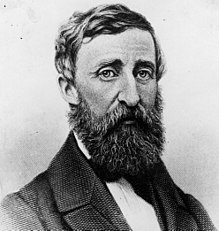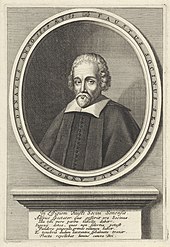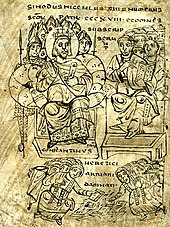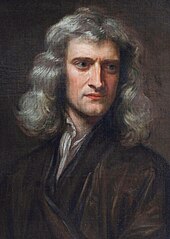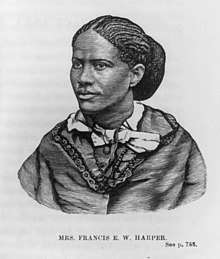From Wikipedia, the free encyclopedia
Unitarianism (from Latin unitas "unity, oneness", from unus "one") is a Christian theological movement that believes that the God in Christianity is one entity, as opposed to a Trinity (tri- from Latin tres "three"). Most other branches of Christianity define God as one being in three persons: the Father, Son, and Holy Spirit. Unitarian Christians, therefore, believe that Jesus was inspired by God in his moral teachings, and he is a savior, but he was not a deity or God incarnate.
Unitarianism is also known for the rejection of several other Western Christian doctrines, including the doctrines of original sin, predestination, and the infallibility of the Bible. In J. Gordon Melton's Encyclopedia of American Religions, the Unitarian tradition is classified among "the 'liberal' family of churches". Unitarians place emphasis on the ultimate role of reason in interpreting scriptures, and thus freedom of conscience and freedom of the pulpit are core values in the tradition.
The movement is tied to the more radical critiques of the Reformation, Unitarianism began almost simultaneously in the Polish–Lithuanian Commonwealth and in Transylvania in the mid-16th century; the Christian denomination that emerged is known as the Unitarian Church of Transylvania. Among the adherents were a significant number of Italians who took refuge in Poland. In the 17th century, significant repression in Poland led many Unitarians to flee or be killed for their faith, notably Katarzyna Weiglowa. From the 16th to 18th centuries, Unitarians in Britain often faced significant political persecution, including John Biddle, Mary Wollstonecraft, and Theophilus Lindsey. In England, the first Unitarian Church was established in 1774 on Essex Street, London, where today's British Unitarian headquarters is still located.
As is typical of dissenters, Unitarianism does not constitute one single Christian denomination,
but rather refers to a collection of both existing and extinct
Christian groups, whether historically related to each other or not,
which share a common theological concept of the oneness nature of God.
Unitarian communities have developed in Britain, South Africa, Central
Europe, India, Canada, the United States, Jamaica, Nigeria, and Japan.
In the United States, different schools of Unitarian theology first spread in New England
and the mid-Atlantic states. The first official acceptance of the
Unitarian faith on the part of a congregation in America was by King's Chapel in Boston, from where James Freeman began teaching Unitarian doctrine in 1784, and was appointed rector and revised the prayer book according to Unitarian doctrines in 1786.
Terminology

Unitarianism is a proper noun and follows the same English usage as other theologies that have developed within a religious movement (Calvinism, Anabaptism, Adventism, Wesleyanism, Lutheranism, etc.).
The term existed shortly before it became the name of a religious
movement, thus occasionally it is used as a common noun that would
describe any understanding of Jesus Christ that denies the Trinity or which believes that God is only one person. In that case, it would be a nontrinitarian belief system not necessarily associated with the Unitarian religious movement. For example, the Unitarian movement has never accepted the Godhood of Jesus, and therefore does not include those nontrinitarian belief systems that do, such as Oneness Pentecostalism, United Pentecostal Church International and the True Jesus Church and the writings of Michael Servetus,
all of which maintain that Jesus is God as a single person. Recently
some religious groups have adopted the 19th-century term biblical unitarianism to distinguish their theologies from Unitarianism.
The term Unitarian is sometimes applied today to those who belong to a Unitarian church but do not hold a Unitarian theological belief.
In the past, the vast majority of members of Unitarian churches were
Unitarians also in theology. Over time, however, some Unitarians and
Unitarian Universalists moved away from the traditional Christian roots
of Unitarianism. For example, in the 1890s the American Unitarian Association began to allow non-Christian and non-theistic churches and individuals to be part of their fellowship. As a result, people who held no Unitarian belief began to be called Unitarians
because they were members of churches that belonged to the American
Unitarian Association. After several decades, the non-theistic members
outnumbered the theological Unitarians. For a more specific discussion of Unitarianism as it evolved into a pluralistic liberal religious movement, see Unitarian Universalism (and its national groups the Unitarian Universalist Association in the United States, the Canadian Unitarian Council in Canada, the General Assembly of Unitarian and Free Christian Churches in the United Kingdom, and the International Council of Unitarians and Universalists).
History
Unitarianism, both as a theology and as a denominational family of churches,
was defined and developed in Poland, Transylvania, England, Wales,
India, Japan, Jamaica, and the United States, and beyond in the 16th
centuries through the present.
Although common beliefs existed among Unitarians in each of these
regions, they initially grew independently from each other. Only later
did they influence one another and accumulate more similarities.
The Ecclesia minor or Minor Reformed Church of Poland, better known today as the Polish Brethren, was born as the result of a controversy that started on January 22, 1556, when Piotr of Goniądz (Peter Gonesius), a Polish student, spoke out against the doctrine of the Trinity during the general synod of the Reformed (Calvinist) churches of Poland held in the village of Secemin. After nine years of debate, in 1565, the anti-Trinitarians were excluded from the existing synod of the Polish Reformed Church (henceforth the Ecclesia maior) and they began to hold their own synods as the Ecclesia minor. Though frequently called "Arians" by those on the outside, the views of Fausto Sozzini
(Faustus Socinus) became the standard in the church, and these
doctrines were quite removed from Arianism. So important was Socinus to
the formulation of their beliefs that those outside Poland usually
referred to them as Socinians. The Polish Brethren were disbanded in 1658 by the Sejm
(Polish Parliament). They were ordered to convert to Roman Catholicism
or leave Poland. Most of them went to Transylvania or Holland, where
they embraced the name "Unitarian." Between 1665 and 1668 a grandson of
Socinus, Andrzej Wiszowaty Sr., published Bibliotheca Fratrum Polonorum quos Unitarios vocant (Library of the Polish Brethren who are called Unitarians 4 vols. 1665–69).
The Unitarian Church in Transylvania was first recognized by the Edict of Torda, issued by the Transylvanian Diet under Prince John II Sigismund Zápolya (January 1568), and was first led by Ferenc Dávid (a former Calvinist bishop, who had begun preaching the new doctrine in 1566). The term "Unitarian" first appeared as unitaria religio in a document of the Diet of Lécfalva, Transylvania, on 25 October 1600, though it was not widely used in Transylvania until 1638, when the formal recepta Unitaria Religio was published.
The word Unitarian had been circulating in private letters in England, in reference to imported copies of such publications as the Library of the Polish Brethren who are called Unitarians (1665). Henry Hedworth was the first to use the word "Unitarian" in print in English (1673), and the word first appears in a title in Stephen Nye's A brief history of the Unitarians, called also Socinians (1687). The movement gained popularity in England in the wake of the Enlightenment and began to become a formal denomination in 1774 when Theophilus Lindsey organised meetings with Joseph Priestley, founding the first avowedly Unitarian congregation in the country. This occurred at Essex Street Church in London. Official toleration came in 1813.
The first official acceptance of the Unitarian faith on the part of a congregation in America was by King's Chapel in Boston, which settled James Freeman (1759–1835) in 1782, and revised the Prayer Book into a mild Unitarian liturgy in 1785. In 1800, Joseph Stevens Buckminster became minister of the Brattle Street Church in Boston, where his brilliant sermons, literary activities, and academic attention to the German "New Criticism" helped shape the subsequent growth of Unitarianism in New England. Unitarian Henry Ware (1764–1845) was appointed as the Hollis professor of divinity at Harvard College, in 1805. Harvard Divinity School then shifted from its conservative roots to teach Unitarian theology (see Harvard and Unitarianism). Buckminster's close associate William Ellery Channing (1780–1842) was settled over the Federal Street Church in Boston, 1803, and in a few years he became the leader of the Unitarian movement. A theological battle with the Congregational Churches resulted in the formation of the American Unitarian Association
at Boston in 1825. Certainly, the unitarian theology was being
"adopted" by the Congregationalists from the 1820s onwards. This
movement is also evident in England at this time.
Beliefs
Christology
Unitarians believe that mainline Christianity does not adhere to strict monotheism, but that Unitarians do by maintaining that Jesus was a great man and a prophet of God, perhaps even a supernatural being, but not God himself. They believe Jesus did not claim to be God and that his teachings did not suggest the existence of a triune God. Unitarians believe in the moral authority but not necessarily the divinity of Jesus. Their theology is thus opposed to the trinitarian theology of other Christian denominations.
Unitarian Christology can be divided according to whether or not
Jesus is believed to have had a pre-human existence. Both forms maintain
that God is one being and one "person" and that Jesus is the (or a) Son of God, but generally not God himself.
In the early 19th century, Unitarian Robert Wallace identified three particular classes of Unitarian doctrines in history:
- Arian, which believed in a pre-existence of the Logos;
- Socinian, which denied his pre-existence, but agreed that Christ should be worshipped; and
- "Strict Unitarian", which, believing in an "incommunicable divinity of God", denied both the existence of the Holy Spirit and the worship of "the man Christ."
Unitarianism is considered a factor in the decline of classical deism because there were people who increasingly preferred to identify themselves as Unitarians rather than deists.
- Conservative Unitarian theology accommodates a wide range of understandings of God.
- Radical Unitarian theology further rejects the importance of dogma, liturgy, and anything other than ethics and a gospel of love.
Several tenets of Unitarianism overlap with the predominant Muslim view of Jesus and Islamic understanding of monotheism.
"Socinian" Christology
The Christology commonly called "Socinian" (after Fausto Sozzini,
one of the founders of Unitarian theology) refers to the belief that
Jesus Christ began his life when he was born as a human. In other words,
the teaching that Jesus pre-existed his human body is rejected. There are various views ranging from the belief that Jesus was simply a human (psilanthropism) who, because of his greatness, was adopted by God as his Son (adoptionism) to the belief that Jesus literally became the son of God when he was conceived by the Holy Spirit.
This Christology existed in some form or another prior to Sozzini. Theodotus of Byzantium, Artemon and Paul of Samosata denied the pre-existence of Christ. These ideas were continued by Marcellus of Ancyra and his pupil Photinus in the 4th century AD. In the Radical Reformation and Anabaptist movements of the 16th century this idea resurfaced with Sozzini's uncle, Lelio Sozzini. Having influenced the Polish Brethren to a formal declaration of this belief in the Racovian Catechism, Fausto Sozzini involuntarily ended up giving his name to this Christological position, which continued with English Unitarians such as John Biddle, Thomas Belsham, Theophilus Lindsey, Joseph Priestley, and James Martineau.
In America, most of the early Unitarians were "Arian" in Christology
(see below), but among those who held to a "Socinian" view was James Freeman.
Regarding the virgin birth of Jesus among those who denied the preexistence of Christ, some held to it and others did not. Its denial is sometimes ascribed to the Ebionites; however, Origen (Contra Celsum v.61) and Eusebius (HE iii.27) both indicate that some Ebionites did accept the virgin birth. On the other hand, Theodotus of Byzantium, Artemon, and Paul of Samosata all accepted the virgin birth.
In the early days of Unitarianism, the stories of the virgin birth were
accepted by most. There were a number of Unitarians who questioned the
historical accuracy of the Bible, including Symon Budny, Jacob Palaeologus, Thomas Belsham, and Richard Wright, and this made them question the virgin birth story. Beginning in England and America in the 1830s, and manifesting itself primarily in Transcendentalist Unitarianism, which emerged from the German liberal theology associated primarily with Friedrich Schleiermacher, the psilanthropist view increased in popularity.
Its proponents took an intellectual and humanistic approach to
religion. They embraced evolutionary concepts, asserted the "inherent
goodness of man", and abandoned the doctrine of biblical infallibility,
rejecting most of the miraculous events in the Bible (including the
virgin birth). Notable examples are James Martineau, Theodore Parker, Ralph Waldo Emerson and Frederic Henry Hedge. Famous American Unitarian William Ellery Channing was a believer in the virgin birth until later in his life, after he had begun his association with the Transcendentalists.
"Arian" Christology
The Christology commonly called "Arian" holds that Jesus, before his human life, existed as the Logos,
or the Word, a being created by God, who dwelt with God in heaven.
There are many varieties of this form of Unitarianism, ranging from the
belief that the Son was a divine spirit of the same nature as God before
coming to earth, to the belief that he was an angel or other lesser
spirit creature of a wholly different nature from God. Not all of these views necessarily were held by Arius,
the namesake of this Christology. It is still Nontrinitarian because,
according to this belief system, Jesus has always been beneath God,
though higher than humans. Arian Christology was not a majority view
among Unitarians in Poland, Transylvania or England. It was only with
the advent of American Unitarianism that it gained a foothold in the
Unitarian movement.
Among early Christian theologians who believed in a pre-existent Jesus who was subordinate to God the Father were Lucian of Antioch, Eusebius of Caesarea, Arius, Eusebius of Nicomedia, Asterius the Sophist, Eunomius, and Ulfilas, as well as Felix, Bishop of Urgell. Proponents of this Christology also associate it (more controversially) with Justin Martyr and Hippolytus of Rome. Antitrinitarian Michael Servetus did not deny the pre-existence of Christ, so he may have believed in it.
(In his "Treatise Concerning the Divine Trinity" Servetus taught that
the Logos (Word) was the reflection of Christ, and "that reflection of
Christ was 'the Word with God" that consisted of God Himself, shining
brightly in heaven, "and it was God Himself"
and that "the Word was the very essence of God or the manifestation of
God's essence, and there was in God no other substance or hypostasis
than His Word, in a bright cloud where God then seemed to subsist. And
in that very spot the face and personality of Christ shone bright.") Isaac Newton had Arian beliefs as well. Famous 19th-century Arian Unitarians include Andrews Norton and Dr. William Ellery Channing (in his earlier years).
Other beliefs
Although
there is no specific authority on convictions of Unitarian belief aside
from rejection of the Trinity, the following beliefs are generally
accepted:
- One God and the oneness or unity of God.
- The life and teachings of Jesus Christ constitute the exemplar model for living one's own life.
- Reason, rational thought, science, and philosophy coexist with faith in God.
- Humans have the ability to exercise free will in a responsible, constructive and ethical manner with the assistance of religion.
- Human nature in its present condition is neither inherently corrupt nor depraved but capable of both good and evil, as God intended.
- No religion can claim an absolute monopoly on the Holy Spirit or theological truth.
- Though the authors of the Bible were inspired by God, they were humans and therefore subject to human error.
- The traditional doctrines of predestination, eternal damnation, and the vicarious sacrifice and satisfaction theories of the Atonement are invalid because they malign God's character and veil the true nature and mission of Jesus Christ.
Unitarians have liberal views of God, Jesus, the world and purpose of life as revealed through reason, scholarship, science, philosophy, scripture and other prophets and religions. They believe that reason and belief are complementary and that religion and science can co-exist and guide them in their understanding of nature and God. They also do not enforce belief in creeds or dogmatic formulas. Although there is flexibility in the nuances of belief or basic truths
for the individual Unitarian Christian, general principles of faith
have been recognized as a way to bind the group in some commonality.
Unitarian Christians reject the doctrine of some Christian denominations that God chooses to redeem
or save only those certain individuals that accept the creeds of, or
affiliate with, a specific church or religion, from a common ruin or
corruption of the mass of humanity.
In 1938, The Christian leader attributed "the religion of Jesus, not a religion about Jesus" to Unitarians, though the phrase was used earlier by Congregationalist Rollin Lynde Hartt in 1924 and earlier still by US President Thomas Jefferson.
Worship
Worship within the Unitarian tradition accommodates a wide range of understandings of God,
while the focus of the service may be simply the celebration of life
itself. Each Unitarian congregation is at liberty to devise its own form
of worship, though commonly, Unitarians will light their chalice
(symbol of faith), have a story for all ages; and include sermons,
prayers, hymns and songs. Some will allow attendees to publicly share
their recent joys or concerns.
Modern Christian Unitarian organizations
This section relates to Unitarian churches and organizations today
which are still specifically Christian, whether within or outside
Unitarian Universalism. Unitarian Universalism, conversely, refers to
the embracing of non-Christian religions.
International groups
Some Unitarian Christian groups are affiliated with the International Council of Unitarians and Universalists (ICUU), founded in 1995.
The ICUU has "full member" groups in Australia, New Zealand, United
Kingdom, Canada, Czech Republic, Denmark, EUU, Finland, Germany,
Hungary, Indonesia, India, Nigeria, Pakistan, Philippines, Poland, Romania, South Africa, Spain. Sri Lanka and the United States. Brazil is a Provisional Member
The ICUU includes small "Associate Groups", including Congregazione Italiana Cristiano Unitariana, Turin (founded in 2004) and the Bét Dávid Unitarian Association, Oslo (founded 2005).
Transylvania, Hungary and Romania

The largest Unitarian denomination worldwide today is also the oldest
surviving Unitarian denomination (since 1565, first use of the term
"Unitarian" 1600): the Unitarian Church of Transylvania
(in Romania, which is in union with the Unitarian Church in Hungary).
The church in Romania and Hungary still looks to the statement of faith,
the Summa Universae Theologiae Christianae secundum Unitarios (1787), though today assent to this is not required. The modern Unitarian Church in Hungary (25,000 members) and the Transylvanian Unitarian Church
(75,000 members) are affiliated with the International Council of
Unitarians and Universalists (ICUU) and claim continuity with the
historical Unitarian Christian tradition established by Ferenc Dávid in 1565 in Transylvania under John II Sigismund Zápolya.
The Unitarian churches in Hungary and Transylvania are structured and
organized along a church hierarchy that includes the election by the
synod of a national bishop who serves as superintendent of the Church.
Many Hungarian Unitarians embrace the principles of rationalist
Unitarianism. Unitarian high schools exist only in Transylvania (Romania), including the John Sigismund Unitarian Academy in Cluj-Napoca (Kolozsvár), the Protestant Theological Institute of Cluj, and the Berde Mózes Unitárius Gimnázium in Cristuru Secuiesc (Székelykeresztúr); both teach Rationalist Unitarianism.
United Kingdom
The Unitarian Christian Association (UCA) was founded in the United Kingdom in 1991 by Rev. Lancelot Garrard (1904–93) and others to promote specifically Christian ideas within the General Assembly of Unitarian and Free Christian Churches (GAUFCC), the national Unitarian body in Great Britain. Just as the UUCF and ICUU maintain formal links with the Unitarian Universalist Association in the US, so the UCA is an affiliate body of the GAUFCC in Great Britain.
The majority of Unitarian Christian publications are sponsored by
an organization and published specifically for their membership.
Generally, they do not serve as a tool for missionary work or
encouraging conversions.
India
In India, three different schools of Unitarian thought influenced varying movements, including the Brahmo Samaj, the Unitarian Church of the Khasi Hills, and the Unitarian Christian Church of Chennai, in Madras, founded in 1795.
As of 2011, "Thirty-five congregations and eight fellowships comprising
almost 10,000 Unitarians now form the Unitarian Union of North East
India."
United States
Whitney Young, executive director of the National Urban League (1961-1971), and Unitarian Universalist.
Unitarian Universalist Association
(UUA) is a network of liberal religious congregations affirming common
ethical principles and the worth and reverence for a variety theological
sources. The UUA was formed in 1961 by the consolidation of the American Unitarian Association and the Universalist Church of America.
Individual congregations may choose to elevate all of the sources
of faith in their worship, or, in their context, move toward affirming
particular sources as predominant. As of 2020, the Unitarian Universalist Association (UUA) reports 187,689 individual members active in 1027 congregations.
The Unitarian Universalist Christian Fellowship
(UUCF) was founded in 1945, originally to support Unitarian Christians
in the American Unitarian Association. The mission expanded to support
Christian members of Universalist Church of America (UCA) in the newly formed Unitarian Universalist Association
(UUA) in 1961. UUCF continues as an affiliate of the Unitarian
Universalist Association (UUA) serving Christian members seeking to
"freely follow Jesus".
The American Unitarian Conference
(AUC) was formed in 2000 and stands between UUA and ICUU in attachment
to the Christian element of modern Unitarianism. The American Unitarian
Conference is open to non-Christian Unitarians, being particularly
popular with non-Christian theists and deists. As of 2009, The AUC has three congregations in the United States.
Unitarian Christian Ministries International was a Unitarian
ministry incorporated in South Carolina until its dissolution in 2013
when it merged with the Unitarian Christian Emerging Church. The
Unitarian Christian Emerging Church has recently undergone
reorganization and today is known as the Unitarian Christian Church of
America.
Australia and New Zealand
The Sydney Unitarian Church was founded 1850 under a Reverend Mr Stanley
and was a vigorous denomination during the 19th century. The modern
church, no longer unitarian Christian, has properties in Adelaide,
Sydney and Melbourne, and smaller congregations elsewhere in Australia
and New Zealand.
South Africa
The Unitarian movement in South Africa was founded in 1867 by David Faure, member of a well-known Cape family. He encountered advanced liberal religious thought while completing his studies at the University of Leiden in Holland for the ministry of the Dutch Reformed Church in Cape Town.
Biblical Unitarian Movement
Biblical Unitarianism (or "Biblical Unitarianism" or "biblical unitarianism") identifies the Christian belief that the Bible teaches God is a singular person, the Father, and that Jesus is a distinct being, his son. A few denominations use this term to describe themselves, clarifying the distinction between them and those churches which, from the late 19th century, evolved into modern British Unitarianism and, primarily in the United States, Unitarian Universalism. In Italy the Biblical Unitarian Movement powered by the ideas of Sozzini and others is represented today by the churches associated with the Christian Church in Italy.
Notable Unitarians
Notable Unitarians include classical composers Edvard Grieg and Béla Bartók; Ralph Waldo Emerson, Theodore Parker, Yveon Seon and Thomas Lamb Eliot in theology and ministry; Oliver Heaviside, Erasmus Darwin, Joseph Priestley, John Archibald Wheeler, Linus Pauling, Sir Isaac Newton and inventor Sir Francis Ronalds in science; George Boole in mathematics; Susan B. Anthony in civil government; Frances Ellen Watkins Harper, Whitney Young of the National Urban League, and Florence Nightingale in humanitarianism and social justice; John Bowring, Samuel Taylor Coleridge and Elizabeth Gaskell in literature; Frank Lloyd Wright in the arts; Josiah Wedgwood, Richard Peacock and Samuel Carter MP in industry; Thomas Starr King in ministry and politics; and Charles William Eliot in education. Julia Ward Howe
was a leader in the woman suffrage movement, the first ever woman to be
elected to the Academy of Arts and Letters, and author of the Battle Hymn of the Republic,
volumes of poetry, and other writing. Although raised a Quaker, Ezra
Cornell, founder of Cornell University in Ithaca, New York, attended the
Unitarian church and was one of the founders of Ithaca's First
Unitarian Church. Eramus Darwin Shattuck, a signatory to the Oregon
State Constitution, founded the first Unitarian Church in Oregon in
1865.
Frances
Ellen Watkins Harper was an abolitionist, journalist, and suffragist
associated with both American Unitarianism and the African Methodist
Episcopal Church.
Eleven Nobel Prizes have been awarded to Unitarians: Robert Millikan and John Bardeen (twice) in physics; Emily Green Balch, Albert Schweitzer and Linus Pauling for peace; George Wald and David H. Hubel in medicine; Linus Pauling in chemistry; and Herbert A. Simon in economics.
Four presidents of the United States were Unitarians: John Adams, John Quincy Adams, Millard Fillmore, and William Howard Taft. Adlai Stevenson II,
the Democratic presidential nominee in 1952 and 1956, was a Unitarian;
he was the last Unitarian to be nominated by a major party for president
as of 2020. Although a self-styled materialist, Thomas Jefferson was pro-Unitarian to the extent of suggesting that it would become the predominant religion in the United States.
In the United Kingdom, although Unitarianism was the religion of
only a small minority of the population, its practitioners had an
enormous impact on Victorian politics, not only in the larger cities – Birmingham, Leeds, Manchester and Liverpool – but in smaller communities such as Leicester, where there were so many Unitarian mayors that the Unitarian Chapel was known as the "Mayors' Nest".
Numerous Unitarian families were highly significant in the social and
political life of Britain from Victorian times to the middle of the 20th
century. They included the Nettlefolds, Martineaus, Luptons, Kitsons, Chamberlains and Kenricks. In Birmingham, England,
a Unitarian church – the Church of the Messiah – was opened in 1862. It
became a cultural and intellectual centre of a whole society, a place
where ideas about society were openly and critically discussed.
Other Unitarians include Sir Tim Berners-Lee, inventor of the World Wide Web Lancelot Ware, founder of Mensa, Sir Adrian Boult, the conductor, Ray Kurzweil, notable inventor and futurist, and C. Killick Millard, founder of the Dignity in Dying society to support voluntary euthanasia. Ram Mohan Roy, an Indian reformer of the 18th century, was a Unitarian who published a book called Precepts of Jesus.

